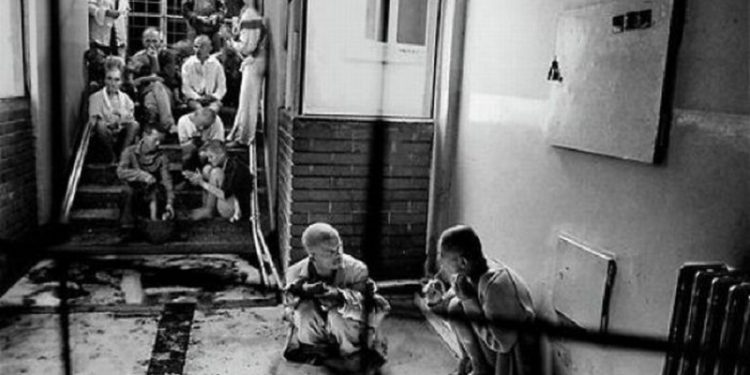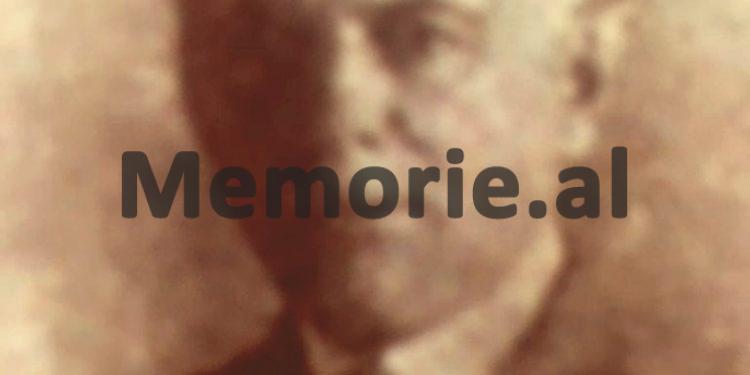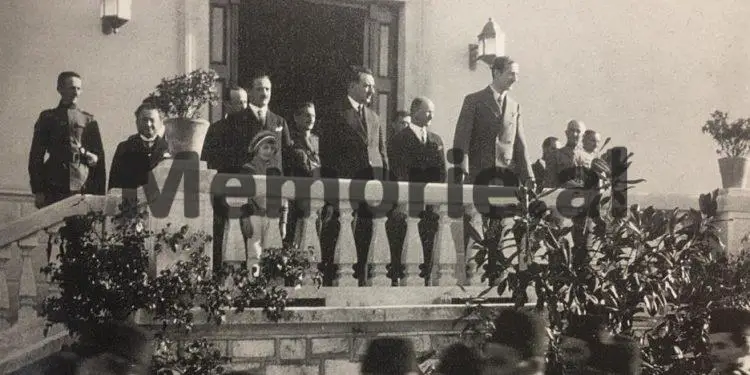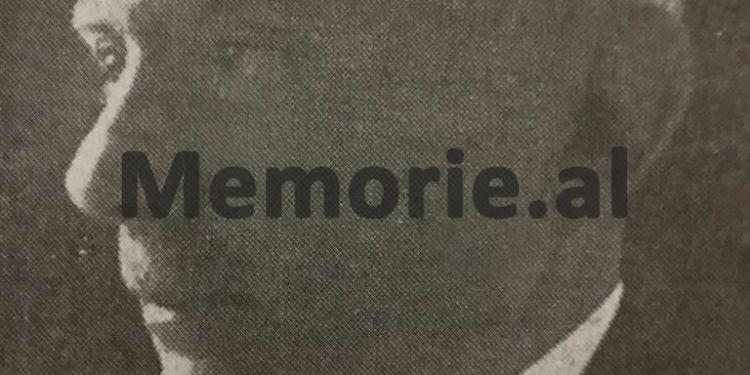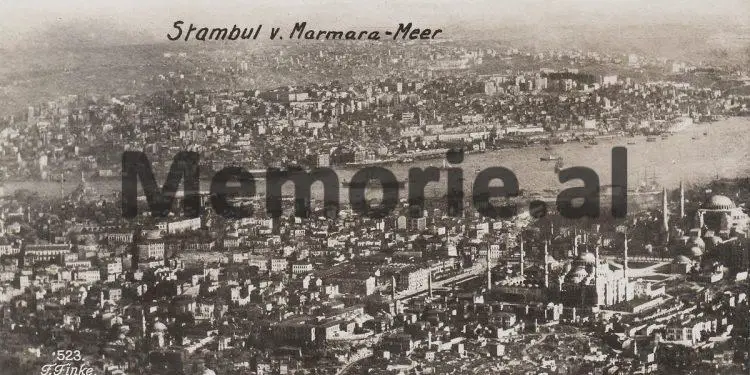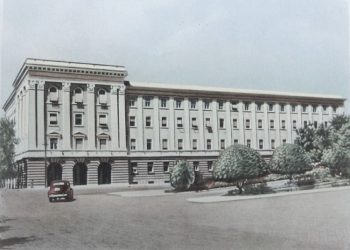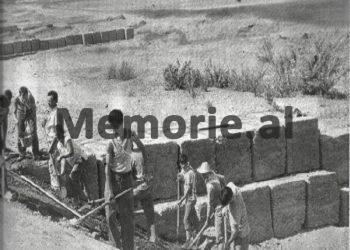From Uran Kalakula
Memorie.al /publishes some parts of the memoirs of the former political convict Uran Kalakula, who in 1960 was arrested by the State Security, being accused of being a member of a group of five people that included: Tanush Kaso, Pjetër Arbnori, Riza Kuçi and Zeqir Koçi, who aimed to form a political grouping with social-democratic tendencies. After a long time in the investigator, he, together with other members of the group, appeared before the trial that took place in Tirana, where Pjetër Arbnori and Uran Kalakula were sentenced to death by firing squad, while the others received sentences ranging from 15 up to 25 years of political imprisonment. But then the Presidium of the People’s Assembly spared the lives of Uran and Pjetër Arbnor, reducing them to 25 years in prison. After pardoning his life, Urani suffered 21 years in the camps and prisons of the communist regime of Enver Hoxha, which he suffered mainly in Burrel Prison. After the 90s, Uran Kalakula wrote his memoirs about the period of serving the sentence by publishing the book “21 years in communist prisons”, where Memorie.al is publishing some parts of it starting from this writing.
Who was Uranus Kalakula?
Uran Kalakula was born in 1929 in the city of Tirana, while the origin of his family is from the town of Libohova. His father, Rasim Kalakula, graduated in Political Science in Turkey and during the Bird Monarchy period, he served as prefect and mayor in several districts of the country. During all the time he served in those duties, Rasim Kalakula was considered one of the most honest and uncompromised officials of the Monarchy and when he passed away in 1938, in the city of Tirana, by order of King Zog, he was organized a funeral ceremony, at the expense of the state, and his burial was attended by hundreds of people. After the death of his father, Uran, together with his brothers and sisters, grew up in a miserable economic condition, since that large family for years lived only on the salary of their father, Rasim. After finishing high school in 1950, Urani worked for some time as a teacher in remote villages and during that time continued his higher studies by correspondence at the Faculty of Philology of the University of Tirana in the Language and Literature branch. In 1961, while Urani was serving as a teacher, he was arrested by the State Security, being accused of being a member of a group of six people who aimed to form a political group with social-democratic tendencies. After a long time in the investigator, he together with other members of the group, such as: Tanush Kaso, Pjetër Toma Arbnori, Riza Kuçi and Zeqir Koçi, appeared before the trial that took place in Tirana, where Pjetër Arbnori and Uran Kalakula, were were sentenced to death by firing squad, while others received sentences ranging from 15 to 25 years of political imprisonment. But then the Presidium of the People’s Assembly pardoned the lives of Uran and Pjetër Arbnor, reducing them to 25 years in prison. After pardoning his life, Urani suffered 21 years in the camps and prisons of the communist regime of Enver Hoxha, which he suffered mainly in Burrel Prison. After being released from prison in 1982, he returned to the city of Shkodra where the family of his wife, Nedret Pipa (sister of Arshi and Myzafer Pipa) lived, and was assigned a job at the Municipal Enterprise, as a worker in opening canals. But he was able to work in that job for no more than a year and a half, as he was interned with his family in the village of Kryevidh in Kavaja, where he worked in agriculture for five and a half years until 1988, when he retired. After 1990, with the collapse of the communist regime, he was engaged in democratic processes and was one of the first intellectuals, from the stratum of ex-convicts and political persecuted, who formed the National Association of Ex-Prisoners and Internees, politician from the district of Shkodra. Likewise, after the 90s, Uran Kalakula returned to his old passion, writing and literature, since in the halls of the Shkodra gymnasium, he began to write his first poems and stories, which he secretly continued even during the years of serving his sentence in camps and prisons, writing stories, poems, essays and literary criticism. Thus, after the 90s, in addition to dozens of articles in the daily press, Urani also published four books entitled: “Verses in handcuffs” (poetry volume), “Albanianization and its European trend”, (essay), “Arshi Pipa, man and work” (monograph) and “21 years in communist prisons” (memoirs).
Memories of the former political convict, Uran Kalakula
The painful story of the Montenegrin Velko Stepanovic!
Velkoja was a well-built man, with a graceful face, blue eyes, but his hair and beard were shaggy. This is a rare contrast in people, which not only does not look bad, but instead shows a harmonious uniqueness. His very appearance was attractive in itself, apart from his gentle, reserved, serious nature, his dignified, slightly withdrawn bearing, and his slow, measured speech. For these reasons, almost everyone approached Velko with pleasure and enjoyed his company. And he didn’t reject anyone, but it seemed that he knew how to give everyone a certain and measured dose of approach. I happened to meet him and in a short time, we became close friends.
After the forced work hours, in the small square in front of the canteen, we often walked up and down, talking about things that were close to our hearts. What attracted me to him as a person was his honesty, seriousness and graceful behavior of a cultured person as well as his openness like spring water. In him, I never noticed pretense, ridiculous boasting, conceit, or the shadow of any vice. It seemed that virtue had taken firm root in his conscience. But with all these positive sides, what pushed me even harder to approach him in a true friendship, based on both trust and mutual respect, was compassion for his many misfortunes that had happened to him, for the sake of which he was in prison for many years.
Although quite unlike me, he had ended up there completely innocent. His real life was worthy of a novel with a very painful content. As a Montenegrin, he was from the heart of his country, from Kolashini, this highland, where poverty has its den in that entire region, since a long time ago. Thus, Velkoja had a rather sad childhood: drowned in poverty. When the war against the Nazi-fascist occupiers in Yugoslavia began, Velkoja, still a teenager, gave his help as a partisan and courier. After the war, when he had finished high school in his country, he had gone to university studies in Belgrade, at the Faculty of Philosophy. It was 1948, when Tito’s break with Stalin happened. But Velkoja, disappointed by the leader of Yugoslavia, Marshal Josif Broz Tito, believed that the right was on the side of Stalin and left the faculty, went down to his homeland, where he took the girl of his heart and with her crossed the border and entered Hoxha’s Albania, in order to go from here to the Soviet Union. But the Albanian government of the time took him to exile, in a village in Lushnje, where he found many other Yugoslavs, who had also come with Velko’s illusions.
Protest of Yugoslav immigrants
In that camp, the immigrants kept them in silos like prison camps and forced them to work in canals and agriculture. This revolted them and among them Velkoja rose up to protest, presenting his request to go to the Soviet Union for studies and anti-Titi’s activities. But the anti-Titus Yugoslav immigration chief, a former Yugoslav military, Aviation commander (I don’t remember his name), accompanied by a representative of the ALP Central Committee, told Velko that: Albania was the most suitable country for the division from titist Yugoslavia, even the vanguard and promised to take him for higher studies in one of the Albanian faculties. In four years of university studies, Velkoja lived in a simple hotel room, together with her Montenegrin wife, where a son was born. And all this with only 3,000 old ALL.
When he received his diploma, he was appointed to a secondary school in Elbasan, where, apart from day students, there were also night students, along with some officers. As a kind and loving person with people, Velkoja, who in the meantime had also learned Albanian for beauty, created friendships with his adult students. Meanwhile, in 1955-’56, Khrushchev agreed with Tito and the matter of returning Yugoslav emigrants to their country (those who wanted) came, and Velkoja came from time to time to Tirana, to complete the return formalities at the Yugoslav Embassy. Then two of his former students begged him to intervene in that embassy if they could have a guarantee from the Yugoslav government that if they escaped, they would not be sent back. But their wives also found out about the plans of these two officers. And since they were more “partisan” than their husbands, they denounced their husbands to the Internal Affairs Department, and Velkoja himself, who was already “fed up” with Stalin’s communism, ended up in prison along with the two officers. Enver, he had even begun to hate him to death.
Velko 25 years in prison
Sentenced to 25 years in prison, he had suffered the blackout, while his wife and baby son had been repatriated. So, there was no one to come to the door of the prison and he did not receive a package from his wife, but no news. Furthermore, as a foreigner, he had not benefited from any amnesty, except for the few days he had benefited from working in the camp. When I met him at Rubik’s, he had made a prison cart and still had plenty more left. In Rubik’s, he worked as an ironworker and got something more than the rest of us. So he could add a little more to the cauldron so he could handle the heavy work. However, I had never heard him complain, cry about the great material shortages, but he faced them with an admirable stoicism, as if for clothing.
Abandoning with contempt, I would even say with indignation, communism, either out of ignorance of Western democracies and their social-political theories, Velkoja had completely thrown himself into a completely ideal plan of these theories, already firmly clinging to Scientism. According to this theory, only scientists should be at the head of the state, without even thinking that they may be knowledgeable and very skilled in a certain field of knowledge (which, thanks to the increasingly large subdivisions, in somehow, they neglected the other branches and ramifications), but they cannot grasp the general, the resultant. He never tired of explaining his new theory to me, and like any neophyte, he was almost fanatical about it. His theory, due to the lack of proper information and relevant literature, was in many ways the fruit of his own imagination and musings. /Memorie.al
To be continued in the next issue






